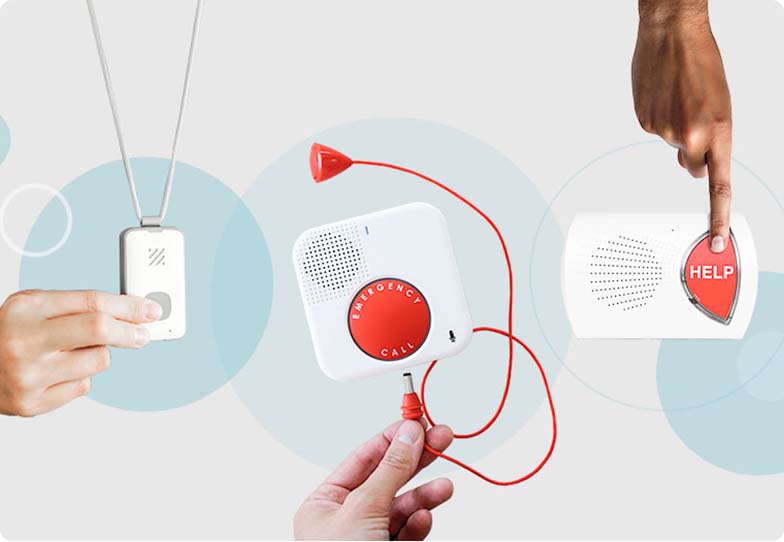Recovering from a burglary is difficult both financially and emotionally. The last thing you need after such a traumatic event is to find out that not all losses are covered by your homeowners insurance. What does homeowners insurance not cover? Read on and don’t wait until it’s too late to make sure all your needs are covered in the event of a break-in.
What is Not Usually Covered By My Home Insurance?
SafeWise experts have years of firsthand experience testing the products we recommend. Learn how we test and review.
By signing up, you agree to our Terms and Conditions and Privacy Policy.
What is homeowners insurance?

Image: Kindel Media, Pexels
Homeowners insurance is a home insurance policy designed to protect from expenses accrued in the event of property damage. Homeowners insurance covers the loss of personal belongings due to a burglary and protects you against liability if a person is injured while on your property too.
However, a home insurance policy does not cover all types of damage or loss. Highly valued items, such as jewelry, fine art, and collectibles, are often excluded from a typical policy for replacement costs. In addition, damage from certain weather events, like floods or earthquakes, usually requires you to purchase additional home insurance. Be sure to check your liability coverage.
Homeowners insurance vs. home warranty
A home warranty is another form of protection that can help homeowners pay for unexpected repairs and costs. A home warranty is usually used in conjunction with the purchase of a newer home to cover problems with systems like plumbing or heating, and it can also help pay for repairs to appliances.
The main difference between a home warranty coverage and homeowners insurance is that insurance covers the structure and property, while a warranty covers internal systems. The combination of the two offers extra financial protection for a broader variety of potential problems and is most useful after a recent home purchase.
What does homeowners insurance not cover?

Image by Mikhail Nilov, Pexels
We’ve put together a list of the five most common items that may not be covered by a standard policy. Use this guide to help you understand how you’re covered and what you can do to augment your homeowners insurance policy coverage if needed.
1. Business equipment and assets
If you operate a business from your home, not all homeowners policies will cover business equipment and other valuable assets, such as proprietary information and client lists. And if your business is housed in a separate structure on your property, it might not be part of your primary homeowners insurance.
To ensure your home business is protected, check into adding a rider to your existing or purchasing additional business insurance that will take care of any business losses at your home. Depending on the nature of your home-based business, there are a variety of options to help cover potential losses due to theft or other catastrophes.
2. Valuables and collectibles
Sometimes your average home insurance policy just doesn’t provide enough coverage for highly valuable items like fine art, jewelry, designer clothing, firearms, and the family silver. Standard policies usually only cover $1,000 to $2,000, according to the Insurance Information Institute,1 which is often not enough to compensate for either the sentimental or real value of these precious items.
You can act to make sure your valuables are protected by increasing your liability limit, adding riders to cover each item, or purchasing Valuable Personal Property Insurance. Other options to explore include acquiring a safe or moving diamonds, gold, and coin collections to a safe deposit box at your bank.
3. Repairs
While most homeowners insurance policies allow for repairs, they sometimes limit your options when it comes to selecting the most competitive bid for a project. Depending on your policy’s fine print, you may miss out on getting work done for less, and you may not be able to choose the best company to complete your home repairs after a break-in.
Find out if your policy requires you to use certain contractors or has other restrictions. Additionally, keep track of all receipts and purchase orders to ensure that the expenses you claim are processed quickly. The easier you make it for the home insurance company to assess the payout, the faster you’ll be depositing that check in the bank.
4. Identity theft
It’s easy to identify the physical items you want to insure and protect, but these days a burglar can get away with so much more than a diamond ring. Identity theft is a real risk, especially if your home has been broken into and the burglar had access to your personal information.
Because identity theft has become more common, some insurers now include it in homeowners policies, but not all do—make sure to check your policy.2
If you're concerned about the fallout from identity theft, adding identity theft protection to your coverage might be smart. Losses that it may cover include phone bills, attorney costs, and lost wages.
5. Cash
If you have large amounts of cash around your home, you need to know that most policies have very limited coverage on lost cash. You can typically expect to recover no more than $200. Since cash usually falls into the same category as valuable personal property—like coins, art, and jewelry—you probably won’t recover much unless you have a special policy or provision.
This is another opportunity to explore security options including safes, alarms, and safe deposit boxes. Here are our top picks for home safes and home security systems.
If you must have emergency cash on hand, consider trying out some more innovative hiding strategies, like using old tennis balls as makeshift banks or turning a used shampoo or conditioner bottle into a sneaky safe.
Are natural disasters covered under my home insurance policy?
Natural disasters are becoming more common around the country, understandably worrying homeowners. Luckily, most natural disasters are covered under home insurance. Your policy probably covers wind storms, hail, lightning and wildfires. There are a few things that your policy may be missing, though.
More than likely, your policy doesn’t cover flooding or earthquakes. That makes sense since not all areas of the country are prone to earthquakes or flooding. If you need coverage, you’ll need to purchase a policy for whichever you need. Earthquake insurance and flooding insurance are two different policies.
Don’t know if you need flood insurance? Here’s how to find out if you live in a flood zone.
Your policy also may not cover hurricanes if you live along the coast. Be sure to check with your insurance agent to make sure your home is protected before the next hurricane blows through.
While hail is a typical thing covered through insurance policies, you may have to pay a different deductible if you live in areas that get hail often, like in Texas, where I live.
Insurance companies are dropping high-risk homes
Now that natural disasters are more common, insurance companies are raising rates for homes in high-risk areas, and in some cases discontinuing policies altogether. For example, residents in California are finding it harder to get policies in wildfire-prone areas.
There’s hope if you can’t find a company that will insure your home. You can get an "insurers of last resort" policy provided by the state. These policies can be expensive, but worth it if your home is destroyed by a natural disaster. Contact your state’s insurance department for more information.

Image by Mikhail Nilov, Pexels
Sometimes you just don't know what to ask about when getting a new home insurance policy or when updating an old one with your insurance company. Here are some topics to bring up and how to find out what your home insurance doesn't cover:
- What is included in their standard homeowners insurance policy?
- Is flood insurance included and what is the National Flood Insurance program?
- What personal property is covered by my policy?
- Can I get a personal property depreciation guide? (If they don't have one, here is a good personal property depreciation calculator.)
- Do I need a personal property appraisal?
- What is covered by my personal liability insurance and does my policy cover medical payment?
- What is included in my Coverage A, Coverage B, Coverage C, Coverage D, Coverage E, and Coverage F?
- How do you get coverage for living expenses? What is the coverage limit?
- Is there a life insurance additional coverage option?
- Are there any optional coverage options you haven't discussed?
How to avoid filing a homeowners insurance claim

Image by Mikhail Nilov, Pexels
The best way to insure your home and valuables against loss from a break-in is to not get burglarized in the first place. Ramping up your home security to better deter burglars is one of the smartest things you can do—and it’s easier than you might think. Here are some simple ways to increase security and minimize the chances of a break-in.
- Use a monitored security system: This is the most comprehensive form of home security, and it provides a 24/7 connection to a monitoring center where someone is always available to respond to an alert. At the first sign of trouble, the security company will contact you and send the police to make sure everything is okay. Here's how to choose a home security system.
- Install security cameras: Surveillance cameras can be part of a larger security system or installed on their own to give you extra awareness of what’s going on at home. Security cameras can be used inside and outside your home. Look for features like motion detection, night vision, and live streaming. Here are our top picks for home security cameras.
- Invest in enhanced lighting: Upgrading your lighting adds extra security and helps protect you and visitors from possible falls. Lights with motion sensors are perfect to scare away potential burglars. And you can use smart lightbulbs to turn lights on and off no matter where you are, ensuring that no one has to stumble along a dark walkway. Here's a list of the best motion security lights.
- Add smart locks: Advances in technology make it so you’ll never have to worry about leaving the door unlocked again. Smart locks come with remote apps that allow you to lock the door from your office, and some even alert you whenever someone tries to gain entry to a locked door or window. Take a look at these top picks for smart locks.
While no security plan is foolproof, adding a monitored alarm system or a few surveillance cameras can go a long way to warding off prowlers before they target your home and valuables. For comprehensive resources on state-of-the-art home security options, visit our convenient security system comparison.
Related articles on SafeWise
Sources
- Insurance Information Institute, "Am I Covered?" Accessed October 3, 2023.
- Insurance Information Institute, "Identity Theft Insurance." Accessed October 3, 2023.
Recent Articles



